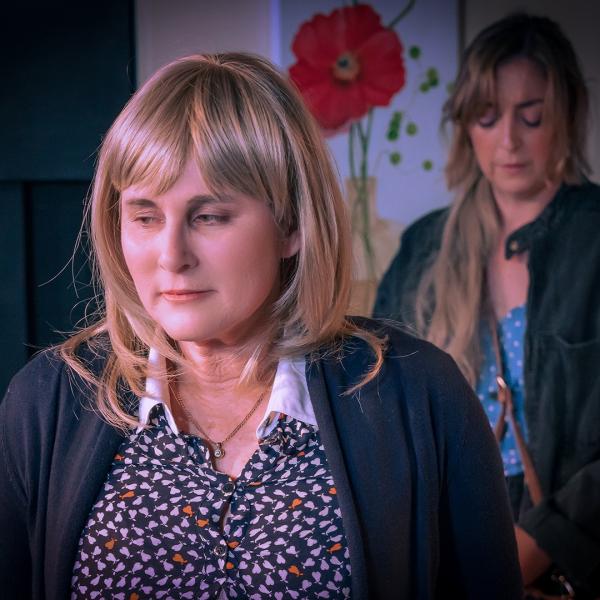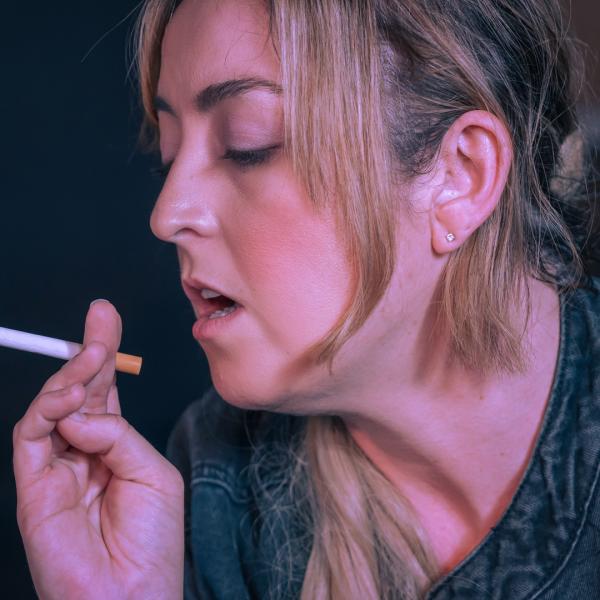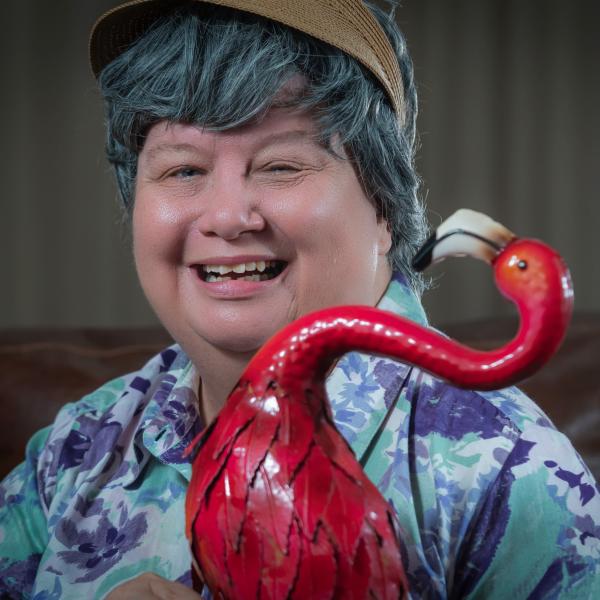Marvin’s Room
Marvin’s Room is a weirdly surreal, sometimes soapish drama: it’s about rebelling against your family history, but also about gracefully accepting the cards you’ve been dealt. One commentator called its style “absurdism shot through with compassion”. It is colourful, sad, but mostly funny. On its surface is a human drama (albeit black comedy), but its subconscious themes of caring, complicated family love, and unfulfilled potential will resonate – and don’t be surprised if the play creeps up on you the next day. It may even make you cry.
McPherson’s play had an off-Broadway debut in 1990 and then an adaptation as a Hollywood A-list film in the late-1990s. But to me, it seems right at home in an off-off mainstage, indie setting. And at Ad Astra in Brisbane, the story is brought to life by an impeccable cast, under confident direction from Roslyn Johnson. There is no doubt, this play has some very dramatic moments – that are up close in the Ad Astra studio – so it takes constraint and confident hands at the helm to balance the laugh-out-loud humour with the pathos.

Fiona Kennedy is superb as Bessie. She exudes love for her family and is the epitome of the calm carer, her life mapped by the needs of others – her father, the unseen Marvin, and her crazy Aunt Ruth – until life throws her a cruel curve ball. It’s a difficult role, but Fiona gives a wonderful and moving performance that is honed and never melodramatic.
As her estranged sister, Lee, Elise Lamb is a fiery free spirit, struggling to bring up her two teenage boys under trying circumstances. Your heart breaks for her efforts to transcend her birthplace.

As the young brothers, Jayden McGinlay and Kieran McGinlay are perfectly cast as Hank and Charlie.
Despite the depressing hospital setting, Jayden’s first scene as Hank lifts the energy of the play, and his performance is very moving as Hank slowly breaks through his angst-ridden wall to develop a relationship with his Aunt. As the younger brother, Charlie, Kieran’s performance adds the optimism that is needed to get us through this complex family saga.

Keeping the humour to the fore are wonderfully accomplished character performances. Phillipa Bowe is the unintentionally hilarious Aunt Ruth – whose TV soap addiction and hypochondria gets her through the day. (Her medical device that accidentally sets off the automatic garage door is so funny it has got to be based on a true incident.)
Tom Harwood shows skilful comic talent as the forgetful Dr Wally – a gift of a character part.
And Marita McVeigh moves from dramatic as Dr Charlotte to darkly comic in her second part as a Kafka-esque Care Home manager. Nicholas Sayers will surely be seen in larger parts in the future, but for now he shows great character support as Bob, the temporary receptionist at his brother’s GP surgery, and provides Marvin’s voice. Roslyn Johnson has directed a great ensemble piece.

As usual Ad Astra have tackled a difficult piece that deserves to be revived on stage. It’s always a collaboration, and stage craftspeople also deserve mention for their input: Meg-Louise Snieder is Assistant Director and Stage Manager; Donovan Wagner does Technical Design; and Ian Johnson is responsible for Set Design and Construction. There is also a terrific 1980s soundtrack that helps with scene segues, with choices that are perfect – Suzanne Vega and other melancholic singer-songwriters of the period who add the right tinge of sadness.
That the playwright, Scott McPherson could eek out any humour from doctor’s waiting rooms and care homes is a miracle. But, after the rude awakening and reality of COVID-19 we can all relate to a family member’s love of TV and finding fun to break out of the everyday drabness. Other parts of the script are very dreamlike – at a visit to Disney World, the older members of the family want to go back to US history in the Room of Presidents, while the two boys are eager to visit Space Mountain on their own. The innocence of their enthusiasm and longing for independence is unexpectedly touching.

Meanwhile, back at the home setting, the unseen and bedridden Marvin gains pleasure from watching the sunlight reflecting and dancing on his bedroom walls. He remains the shadow in the play – all his history, his own backstory of caring for his dying wife, his life as a father, unseen offstage. One line that will stay with you is Bessie’s “I’ve been so lucky to have so much love in my life.” Of course her sister questions this because Bessie has only had one boyfriend, but her clarification is heart-breaking: "I am so lucky to have been able to love someone so much. I am so lucky to have loved so much."
This makes even more sense when you learn that Scott McPherson wrote about what he knew: his story was inspired by his friends and the gay community all caring for one another during the AIDS crisis in the 1980s. Scott McPherson was only 33-years-old when he died of AIDS-related causes. His screenplay for the film version of Marvin’s Room was his last work. So, as well as contemplating your own life and its T-junctions, this play will also leave you wondering about McPherson and what other works might have been.
Find out more: https://www.adastracreativity.com/productions/marvins-room
Beth Keehn
Subscribe to our E-Newsletter, buy our latest print edition or find a Performing Arts book at Book Nook.

